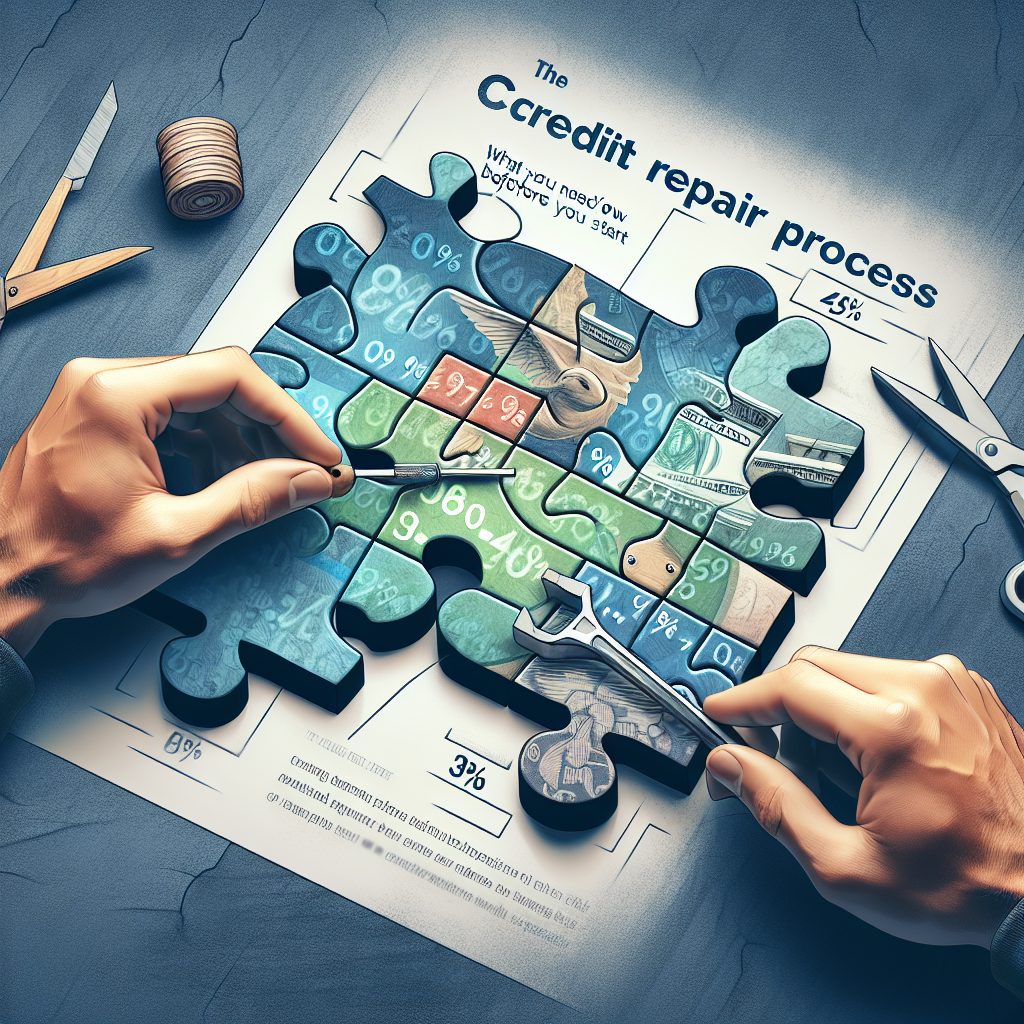When it comes to financial health, your credit score plays a critical role. A poor credit score can hinder your ability to obtain loans, secure lower interest rates, and even affect your employment prospects. If you’re considering credit repair, this comprehensive guide will walk you through the credit repair process, highlighting essential steps and tips to maximize your results.
Understanding Credit Repair
What is Credit Repair?
Credit repair is the process of identifying and disputing inaccuracies in your credit report to improve your credit score. It can involve correcting errors, negotiating with creditors, or making strategic financial decisions to enhance your overall creditworthiness.
Why is Credit Repair Important?
Maintaining a healthy credit score is crucial. It affects everything from loan approvals to rental applications, and even insurance premiums. Credit repair can help remove negative items from your credit report, enabling you to achieve your financial goals faster and with more favorable terms.
Step-by-Step Guide to the Credit Repair Process
1. Obtain Your Credit Report
Before you can begin the credit repair process, you must first obtain your credit report. You can request your report for free once a year from AnnualCreditReport.com. Review it carefully for any inaccuracies or discrepancies.
2. Identify Errors
After acquiring your credit report, the next step is to identify errors. Look for:
- Misspelled names or incorrect personal information
- Late payments that were made on time
- Accounts that don’t belong to you
- Inaccurate credit limits or balances
3. Dispute Inaccuracies
If you find inaccuracies, it’s time to dispute them. Inaccuracies can be contested by:
- Sending a dispute letter to the credit bureaus (Equifax, Experian, and TransUnion)
- Providing any supporting documentation to substantiate your claims
- Following up until the errors are corrected
4. Follow Up on Disputes
Once you’ve submitted your dispute, the credit bureau has 30 days to investigate. You’ll receive a response, and if the disputes are resolved in your favor, the changes will be reflected in your credit report. Make sure to track your disputes and follow up as necessary.
5. Work on Your Payment History
Your payment history accounts for a significant portion of your credit score. Ensure you pay all your bills on time moving forward. If you have missed payments, consider reaching out to creditors to negotiate overdue payments and set up a payment plan.
6. Reduce Credit Utilization
Another important factor in your credit score is your credit utilization ratio. Aim to keep your credit utilization below 30%. You can do this by:
- Paying off existing balances
- Increasing your credit limit
- Diversifying the types of credit you use
7. Consider Professional Credit Repair Services
If the process feels overwhelming or if you prefer to have a professional handle it, consider hiring a credit repair company. Research reputable companies with good reviews and transparent pricing. Be aware that some companies may use unethical practices, so proceed with caution.
Tips for Effective Credit Repair
Track Your Progress
After starting the credit repair process, regularly check your credit score and report to monitor your progress. Use free services or tools that provide updates on your credit standing.
Stay Informed
Educate yourself about credit scores and the factors that affect them. Understanding how credit works will empower you to make informed financial decisions.
Create a Budget and Stick to It
A well-planned budget can help you manage expenses, prioritize payments, and ultimately improve your credit score. Commit to a budget to avoid overspending.
Common Pitfalls in Credit Repair
Falling for Scams
Be cautious of companies that promise quick results or use aggressive tactics. Legitimate credit repair takes time and persistence.
Ignoring Your Credit Report
Don’t overlook important statements and updates in your credit report. Regularly monitor your credit to catch any new inaccuracies as they arise.
Relying Solely on Credit Repair Services
While credit repair services can help, maintaining a high credit score requires personal commitment to financial health. Implement the strategies mentioned in this article to ensure lasting improvements.
Conclusion
Navigating the credit repair process can be daunting, but understanding its steps and potential pitfalls will set you on the path to financial stability. Whether you choose to manage the process on your own or seek professional help, remember that improving your credit score requires patience and dedication. By taking proactive measures today, you can pave the way for a brighter financial future.

